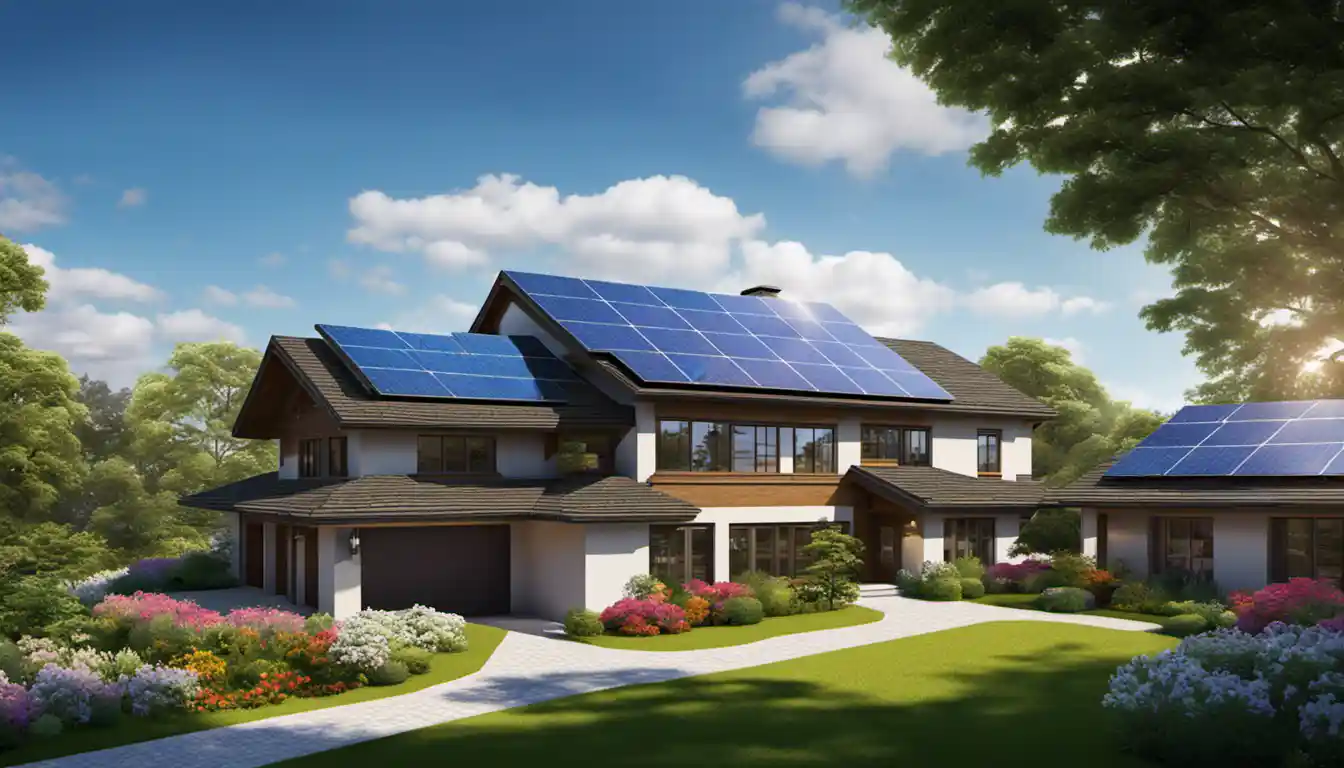Understanding Solar Panel Efficiency
To increase solar panel efficiency, it’s important to position them in a place where they receive maximum sunlight throughout the day, typically facing south in the Northern Hemisphere and north in the Southern Hemisphere. Regular cleaning and maintenance, such as removing dust and debris, can also ensure they work at full capacity. In addition, using a solar tracker system to move the panels to follow the sun’s path or installing a cooling system can enhance the efficiency of solar panels.
As a solar energy expert, ‘how to increase solar cell efficiency?’ is a common question I encounter. To answer that, you need to understand what solar panel efficiency means. Simply put, it’s the measure of how much sunlight the panel can convert into usable electricity. The higher the efficiency, the more power your solar energy system can produce.
The Importance of Solar Panel Efficiency
Efficiency in solar panels is critical for a few reasons. Firstly, they save you money. More efficient solar panels generate more power, a factor that can be crucial if you’re heavily reliant on solar power. Furthermore, efficient solar panels take up less space. This makes them a great source for your power needs if your space is limited.
Factors Affecting Solar Panel Efficiency
Solar panel efficiency can be affected by several factors, such as Installation angle, climate, temperature, and even the type of solar cells. Understanding these factors can go a long way when seeking solutions on how to increase solar panel efficiency.
Techniques to Boost Solar Panel Efficiency
Now that we understand the basics let’s dive into the practical part – techniques you can use to boost solar panel efficiency.
Professional Solar Panel Installation
Hiring Experienced Solar Installers
Would you entrust your health to an inexperienced doctor? I guess not. The same logic applies when installing solar panels. Experienced installers understand the nitty-gritty details of proper solar panel placement and how to avoid potential issues that could affect the panel’s performance. They will ensure that your solar panels are strategically placed to receive maximum sunlight all year round.
Importance of Correct Solar Panel Placement

Correct placement directly impacts the efficiency of solar panels. In most cases, south-facing panels generate maximum output because they receive direct sunlight throughout the day. However, a professional installer should consider the unique landscape and architecture of your building – it might sometimes be more beneficial to place panels to the east or west.
Solar Panel Cleaning
Regular Maintenance of Solar Panels
Just as you maintain your car to run efficiently, solar panels need to be maintained too. Regular cleaning can prevent dust and bird droppings from blocking sunlight. This can be as simple as using warm soapy water and a soft brush or hiring a professional cleaning service for the same.
Impact of Dirt on Solar Efficiency
You might wonder, does a little bit of dust make a difference? Indeed, it can! Dirt can significantly reduce your panel’s effectiveness by blocking sunlight. By keeping your panels clean, you eliminate this blockade and allow your panels to take in as much sunlight as possible.
Peak Sun Hour Usage
Understanding Sun Peak Hours
The sun’s intensity changes throughout the day, which can affect your solar panel’s production. Peak sun hours typically occur mid-day when the sun is at its zenith, providing the maximum amount of solar radiation. Shifting your high-power activities to these peak hours can help you take full advantage of your solar set up.
Solar Panel Tracking Systems
The Role of Tracking in Solar Efficiency
![]()
To further maintain optimal performance, solar panel tracking can increase the production of your system. These tracking systems pivot your solar panels to track the sun’s path throughout the day.
Different Types of Tracking Systems
There are mainly two types of solar tracking systems – single-axis and dual-axis. Single-axis trackers move from east to west, while dual-axis trackers adjust according to the sun’s position throughout the day and the seasons.
Energy Management
Single Device Usage
The quest for increasing your solar panel’s efficiency also requires you to rethink your usage patterns. To save energy, avoid running multiple high-wattage appliances simultaneously.
Energy Storage for Backup
Storing surplus solar power in solar batteries for later use can significantly enhance your solar system’s capacity and efficiency. You get to use your stored power during the night or during cloudy hours when solar generation might be lower.
Monitoring Solar Output using Energy Management Software
Modern energy management systems provide real-time data on solar panel performance. Regular monitoring can help identify any issues early and make preventative maintenance much easier, therefore maintaining optimal efficiency.
Panel Selection and Configuration

Choosing Efficient Solar Panel Models
When purchasing solar panels, the type of solar cell used in their production is key. Monocrystalline cells, for example, are highly efficient as they’re made from a single crystal structure. This allows for free movement of electrons, thus providing a higher efficiency rate.
Solar Concentrators and Solar Panel Efficiency
Understanding Solar Concentrators
Solar concentrators can be a useful tool. These devices work by focusing the sun’s energy into a smaller area, thus increasing the amount of light that hits the cells and boosting the panel’s output.
Optimizing Placement of Photovoltaic (PV) Panels
Importance of Unshaded Installation Area
To get the most from your panels, it’s integral to have a shadow-free installation site. Shadows can significantly reduce efficiency and power production.
Layout Considerations for PV Panels
The physical layout of the panels can also heavily influence performance. In short, ensuring your solar array is designed and positioned correctly can have a dramatic effect on your system’s overall efficiency.
By implementing these tactics, you can significantly improve your solar panel output. Remember, it’s all about a combined effort. The genius of a solar panel system lies in the comprehensive approach to capturing, converting, and using sunlight effectively. For more information on solar panel efficiency, take a look at this informative guide: How Efficient Are Solar Panels?
As we continue to evolve towards a sustainable future, refining and optimizing solar panel efficiency is a journey worth embarking on. After all, every ray of sunlight has the potential to power our lives. Let’s make the most of it!



